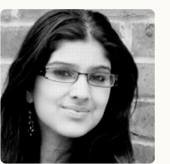

British Muslims
European Muslims
Originated From
Age & Sex
Places of Worship
Ethnic Groups
Defining Identity
What they Say
Profession of Faith
Praying
Social Responsibility
Fasting
Pilgrimage
Muslims in Britain
Impact of Media
Islamophobia
Identity
British & Muslims
Surveys
Interviews
Auto Photography
Interviews
Capturing identity
In primary research, one of the questions asked to young prominent British Muslims was; do you feel you can be British and Muslim? All the interviewees agreed that being Muslim and British was not an issue to them, as being both was not mutually exclusive. To them, people who bring up the question of identity about Muslims are usually those trying to exploit and divide Muslims for their specific agendas.
Politics

Rabia Bhatti
Youngest Muslim Councillor in Britain
Conservative Party
The images collected show a glimpse of what these young people hold valuable and important to their lives (please refer to appendices A). They show objects and places that help make up their identity. They also give us glimpses of what young Muslims feel about their identity, the values they hold as British citizens and how they feel about living in Great Britain today. Some young Muslims showed visual representations of their faith such as wearing the crescent and star, others of places they enjoy hanging out in e.g. the shisha cafes.
How do you go about challenging negative and false stereotypes of British Muslims?
The same we challenge all other negative and false stereotypes, by showing that it’s not true. The lives of British Muslims and the question of our identity, who we are and what we believe is has been significantly raked over by the media. Much has been said that is not true and we start challenging these misconceptions and stereotypes by demonstrating that the word Muslim does not mean Fundamentalist and Islam is not another name for violent activity.
Do you think having more young Muslims going into politics will help give a better image of young Muslims in British society?
Yes. The Harry Potter bug seems to have caught most people, but unfortunately we don’t have a magic wand that can over-turn stereotypes or provide people with the ‘real’ image of who we are unless we do it ourselves and that’s exactly what we need to be encouraging.
How do you feel British Muslim identity is branded in politics?
Since 9/11, I think we have come a long way in educating people about what our British Muslim Identity really stands for and what it means to us. But it’s not perfect. This is why we can’t give up and give in. Changing world opinion isn’t an overnight revolution and nor should it be. It takes commitment and a whole lot of hard work to educate people more about what our British Muslim Identity really is.
What advice would you give to young Muslims wanting to have a career in politics?
Never give up. When fighting my own election I knew that even If I lost, I’d still have won in inspiring, encouraging and motivating other young people up and down the country. That’s the bigger picture and that’s what counts. Politics is not a door that is closed to young Muslims, it’s a door that many people don’t think they can get through and that’s just not true.
What impact does labelling and branding of young Muslims have on the perceptions and attitude in our society?
I personally lay the blame of that at the feet our media. This damaging and unfounded labelling and branding of young Muslims is the source of many of our problems as a collective society. The wrongful perceptions that create this negative attitude are a detrimental pull to our framework of equality and excellence and it must stop before more harm can be done. We cannot allow ourselves to be complacent when our media promotes such unjustified images and feeds into negative perceptions. For too long has the media machine oiled its destructive wheels on glossing over facts and left us to pick up the pieces.
Do you believe multiculturalism has failed in Britain?
I don’t believe multiculturalism has failed in Britain. I believe there is much more to be done to tackle the obstacles that stop multiculturalism from being more of a success and focus on the engagement aspect not only to integrate and learn from one another but to also provide a stronger British identity. The way to do this is first to remove the issue of branding and stereotyping in order for people to feel more comfortable to step outside their comfort zone. When we’re failing to do this as a country of course multiculturalism is going to suffer, but that does not mean its failed.
Do you feel you can be British and Muslim?
Without a shadow of doubt.